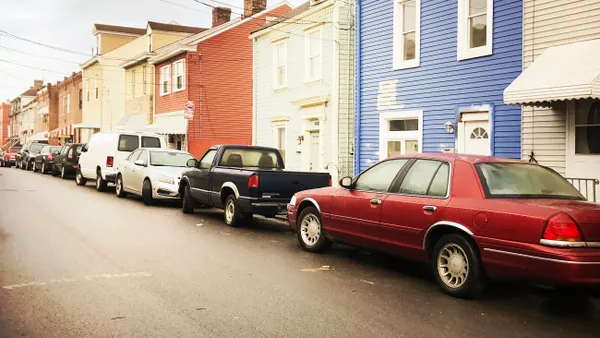Dive Brief:
- A watchdog group is reportedly suing the City of San Diego over its Smart Streetlights Program, according to The San Diego Union-Tribune and others.
- San Diegans for Open Government (SDOG) requested source data collected through the streetlight program's 4,200 intelligent sensors and information related to processed data, according to the Union-Tribune. SDOG accuses the city of violating California's open record laws by not providing the information.
- The City Attorney's Office had not been served with the lawsuit as of Wednesday afternoon, a spokesperson told Smart Cities Dive via email.
Dive Insight:
San Diego's Smart Streetlights Program launched a few years ago as a pilot program that would result in about 3,000 LED streetlights installed throughout the city. The program website indicates the more energy efficient lights save the city $2.8 million annually. The streetlight sensors also are viewed as beneficial for improving parking, traffic flow, safety and helping to determine necessary bike lane enhancements. Police investigations are one well-known way the city uses the collected data.
The City of San Diego has held numerous forums and performed outreach to inform citizens about the Smart Streetlights Program and its data collection. Although the city touts the use of an open data platform to make the collected, anonymous metadata public, it also notes that privacy is paramount and policies are in place to protect citizens' information.
But the program has sparked controversy over data use and collection. Advocacy groups and members of the public have raised concerns about the cameras serving as a form of government surveillance. And this fall, the controversy widened as reports emerged that the city gave General Electric (GE), the streetlight camera provider, unrestricted rights to the collected data. Some council members said they wanted to stop installing additional smart streetlights until they receive information about how GE might use and cell the collected data.
Opponents of the program continue to be vocal at city forums. But city officials repeatedly tell the public that the city owns the source data and is not selling it or spying on citizens.
San Diego's situation illustrates the challenges cities face when introducing both open data and surveillance programs. Uber and Los Angeles have been battling over the mobility company's decision to not provide the city with required dockless device data through the Mobility Data Specification. Uber says handing over requested datasets would violate riders' privacy.
San Francisco and Oakland, CA are among the cities that have passed a ban on the government using facial recognition technology to protect citizens' privacy and security. That technology is frequently cited as a boon for police officers, but it also is considered a civil rights issue, especially for minority populations.
SDOG has a history of suing the city in an effort to keep the government honest and serving citizens. Earlier this month, it filed a lawsuit over what it called misleading ballot language regarding the city's hotel tax.
The City Attorney's Office said it will respond to the smart streetlight lawsuit through the courts once it is served.










